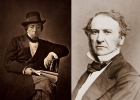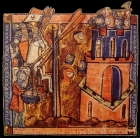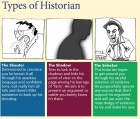Historical Argument
One of the most widely shared misconceptions among young people is that there can be one ‘true’ story of the past and that the value of any given interpretation depends on how closely it approximates to this ideal account. Enabling students to recognise that what historians are actually doing when they write about the past is advancing a series of claims – presenting and defending an argument – will help them not only in handling different interpretations but also in improving their own writing. Read more
-

Using nominalisation to develop written causal arguments
ArticleClick to view -

The knowledge illusion
ArticleClick to view -

Using Google Docs to develop Year 9 pupils’ essay-writing skills
ArticleClick to view -

How do you construct an historical claim?
ArticleClick to view -

Exploring big overviews through local depth
ArticleClick to view -

New, Novice or Nervous? 159: Writing history essays
ArticleClick to view -

Engaging Year 9 students in party politics
ArticleClick to view -

Enabling Year 7 to write essays on Magna Carta
ArticleClick to view -

Pipes's punctuation and making complex historical claims
ArticleClick to view -

The Harkness Method: achieving higher-order thinking with sixth-form
ArticleClick to view -

What made your essay successful? I ‘T.A.C.K.L.E.D' the essay question!
ArticleClick to view -

Triumphs Show 159: teaching paragraph construction
ArticleClick to view -

Finding the place of substantive knowledge in history
ArticleClick to view -

Assessment after levels
ArticleClick to view -

Getting medieval (and global) at Key Stage 3
ArticleClick to view -

Helping Year 9 debate the purposes of genocide education
ArticleClick to view -

Helping Year 9 evaluate explanations for the Holocaust
ArticleClick to view -

Developing students' thinking about change and continuity
ArticleClick to view -

Continuity in the treatment of mental health through time
ArticleClick to view -

Teaching students to argue for themselves - KS3
ArticleClick to view

